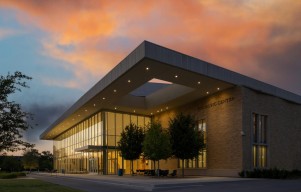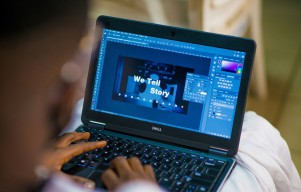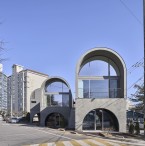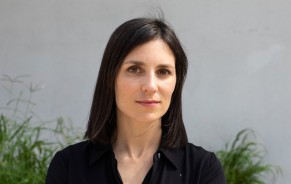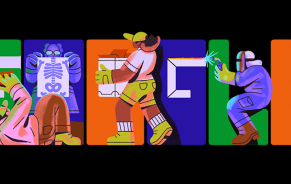
(Photo: unsplash.com/@lukevz)
In the ancient history of architecture, one factor was the domination of human creative brains and abilities. Still, a new player appeared on stage, changing the architecture boundary. However, one unbeatable force emerges from the depths of modern technology: artificial intelligence (AI), a very fast-paced technology that can totally transform the usual way buildings have been conceived, designed, and constructed. British Brains behind architecture, curator, and writer Neil Leach has the central role in this issue, with the commitment to unfold his thoughts on AI's growing and evolution of architecture during a free lecture conducted by the Auckland University's School of Architecture and Planning on Tuesday the 30th of April.
Leach says that architects will soon no longer be found as a profession or become extinct. "It is going quite fast that the AI will outperform the human to the extent that it achieves a point in which it can use art in order to design a building completely on its own." Together with AI ability to produce designs not only fast but also with the accuracy that never existed, everything that stands in the architecture universe is subject to the rapid revolution of AI, old architects going to be left out of this whole thing. Architects will be a history, and the fact that AI is its cause is entirely what architects will be after their profession.
Exploring Neil Leach's Perspective
Provocative, Jonathan Leach is not a mere passive observer of architecture and technology intersection, but a recognized facilitator of this curious domain. Currently, she is visiting Harvard Graduate School of Design as a Visiting Professor, a Professor at the European Graduate School, an Adjunct Professor at the University of Southern California, and a Gao Feng Professor at Tongji University. Her added knowledge and expertise make her the best candidate for the job.
His research spans two primary domains: critical theory and digital design. Leach has authored numerous monographs and edited volumes in critical theory, exploring the impact of importing theoretical tools from critical theory into architectural discourse. His works include "Rethinking Architecture: A Reader in Cultural Theory," "The Hieroglyphics of Space: Reading and Experiencing the Modern Metropolis," and "The Anaesthetics of Architecture." Moreover, Leach has played a pivotal role as a co-curator of various exhibitions at the Architecture Biennial Beijing, further cementing his influence in the global architectural community.
Also Read: Brick in Architecture Awards 2024 Winners Unveiled
The Rise of AI in Architecture
Leach's discussion boils down to how AI, to a large extent, at the architectural scene, is changing the scenario. The past has witnessed the various stages through which the architects and the creative process were widely held to be exclusive among all designs; however, AI has attained its position to two-slide the traditional mode of production in architecture. Modern AI tools use cutting-edge algorithms and the learning capabilities of machines so that they can design buildings with increased speed and accuracy, transcending the usual limits.
This cinch creates intimidating queries about the future of architects in an environment increasingly defined by AI-developed architecture. Will architects become redundant, and will only the control towers of AI-driven design processes be left to designers? Embrace the AI revolution and harness this miraculous hand as a tool to innovate artistry, blurring the line between architecture as a once simple concept and a complex process.
Navigating the Future
As we stand on the cusp of this architectural revolution, one thing remains clear: the development of artificial intelligence in the future is evaluated as being intimately associated with architecture. As artificial intelligence becomes increasingly widespread, architects inevitably face new challenges. They must balance using the available tools while keeping the firm's old traditions.
According to Neil Leach, the solution can be the direction toward breaking the tension between technology and humanity through observation of interactions and partnerships in which AI does not merely compete with people but acts as a tutor for them. By utilizing AI's abilities to strengthen human creativity and humanizing new dimensions in which architecture could be created, they can direct the world toward a future without borders for creativity.
When students of Auckland University School of Architecture and Planning listen to Professor Neil Leach, they explore a territory where they will discover the architecture of artificial intelligence or AI. In this brave new world, there arises a perplexing environment where the divide between humanity and machines diminishes. One should find themselves in a unique location where creativity and timeliness converge plausibly.
Related Article: Milan Luxury Architecture Summit 2024 Delivers Visionary Insights



